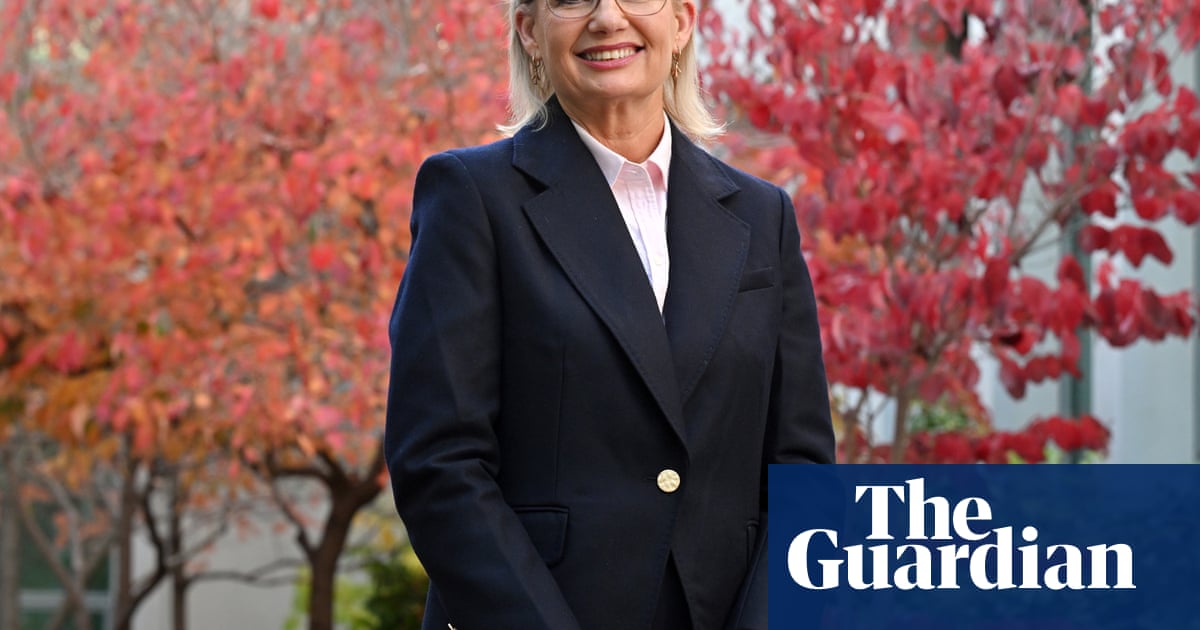The only timeSussan Leyever pointed a gun was on the side of a dark road, somewhere between the remote New South Wales towns of Nyngan and Bourke.
It was late at night and the future Australian opposition leader had made a camp fire as she drove through regional NSW to reach the Queensland backcountry, where she would start work mustering livestock in a light plane.
In her early 20s, Ley had bought camping gear and a rifle before leaving home. Her father, a former British military intelligence officer, taught her how to use the weapon, which Ley kept under the passenger seat of her 1969 Holden.
After pulling to the side of the road to sleep one night, a motorbike rider approached Ley threateningly, asking why she was alone. She told the man she had her “tall skinny mate” for company, pointing the M1 semiautomatic as her hands shook.
“He said, ‘crazy bitch,’ and the bike wobbled almost as much as I did,” Ley remembered in an interview years later. After the man rode away, she packed up and drove six hours straight to safety.
Thenew leader of the Liberal partywill need to show similarly tough stuff if she is to succeed in rebuilding fromthe Coalition’s historic losson 3 May. Three years out from the next election, the 63-year-old on Tuesday became Australia’s first female opposition leader and the most senior woman in the Liberals’ 80-year history. She will face off witha strengthened Labor governmentand a prime minister, Anthony Albanese, emboldened by a thumping new mandate.
Sign up for Guardian Australia’s breaking news email
Despite a quarter of a century in frontline politics, Ley’s personal history isn’t well known among voters. Born in Kano, Nigeria, Ley is a former wool and beef farmer and tax office executive. Arriving from England as a teenager with her family, she practised her Australian accent in the mirror to fit in better with her schoolmates, later turning to punk rock and then complex tax policy to find herself and her career.
After time as an air traffic controller in Sydney, she worked multiple jobs to pay for flying lessons and was hired to muster livestock on a remote station near Thargomindah, in south-west Queensland. She later worked as a station cook, and then raised her three children on the land, before studying accounting and economics to boost the family’s income. Named Susan by her parents, she added an extra “s” in her 20s, a decision guided by numerology.
In her 30s, Ley went to university and arrived at her first lectures with a baby on her arm. Even today, the grandmother declares a Cessna 182 on her declaration of interests.
“I learned the value of a hard day’s work in the hot sun,” Ley said in her first press conference, accompanied by newly picked deputy leader, Ted O’Brien. “I learned the real value and the dignity of manual labour.”
One of the longest serving women in Canberra today, Ley (pronounced “lee”, not “lay”), cut her teeth in politics by converting the family’s caravan into a rolling campaign headquarters. She won the rural NSW electorate of Farrer in 2001 and went on to serve as education, health and environment minister in Coalition governments. She was one of just two women in Tony Abbott’s first cabinet, but was forced to quit the ministry under Malcolm Turnbull when she was accused of misusing travel entitlements to buy an $800,000 investment property on the Gold Coast.At the time, Ley called it an “error of judgment”.
TheCoalitionneeds to win more than 30 seats to be competitive at the next election, due in 2028. To that end, the new leader promised to meet voters “where they’re at” and committed to reviewing policies on immigration, energy, climate and Indigenous affairs. Ley is a moderate in a party increasingly dominated by conservatives, but says she will appoint MPs who supported her rival Angus Taylor to her new-look frontbench, with the lineup to be named in due course.
Sign up toBreaking News Australia
Get the most important news as it breaks
after newsletter promotion
The former Liberal National party MP Warren Entsch said he’d had fingers and toes crossed that Ley would win against the former shadow treasurer.
“She’s got the experience. She’s been the deputy and been in the parliament for a long time and she’s very capable,” he told Guardian Australia. “We lost a lot of bloody good moderates this time. Not because they were bad members but basically because they were tagged as being part of a move too much to the right.”
Ley’s supporters have rejected claims she was positioning for the leadership before the former leader Peter Dutton’s election loss. One Liberal praised her for convincing Dutton to dump his unpopular work-from-home policy for public servants, after entreaties to other senior frontbenchers had fallen on deaf ears.
Asked who her political idol is, Ley said she took inspiration from everyday people and wanted to win over new voters in the “sensible centre”. She paid tribute to her mother, Angela Braybrooks, who is receiving end of life care in Albury.
One former Liberal leader, Scott Morrison, sent congratulations to Ley and O’Brien after the 29-25 vote. “Miracles still happen, and a path is always there, no matter how narrow,” Morrison wrote on social media.
Just whether Ley is tough enough or lucky enough to bring the Liberals back from the brink remains to be seen. She showed little sign of doubt as she fronted the Canberra press pack for the first time on Tuesday.
“One hundred per cent I will be here in three years,” she said. “But more than that, we will be in a competitive position.”
